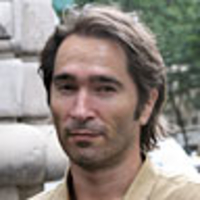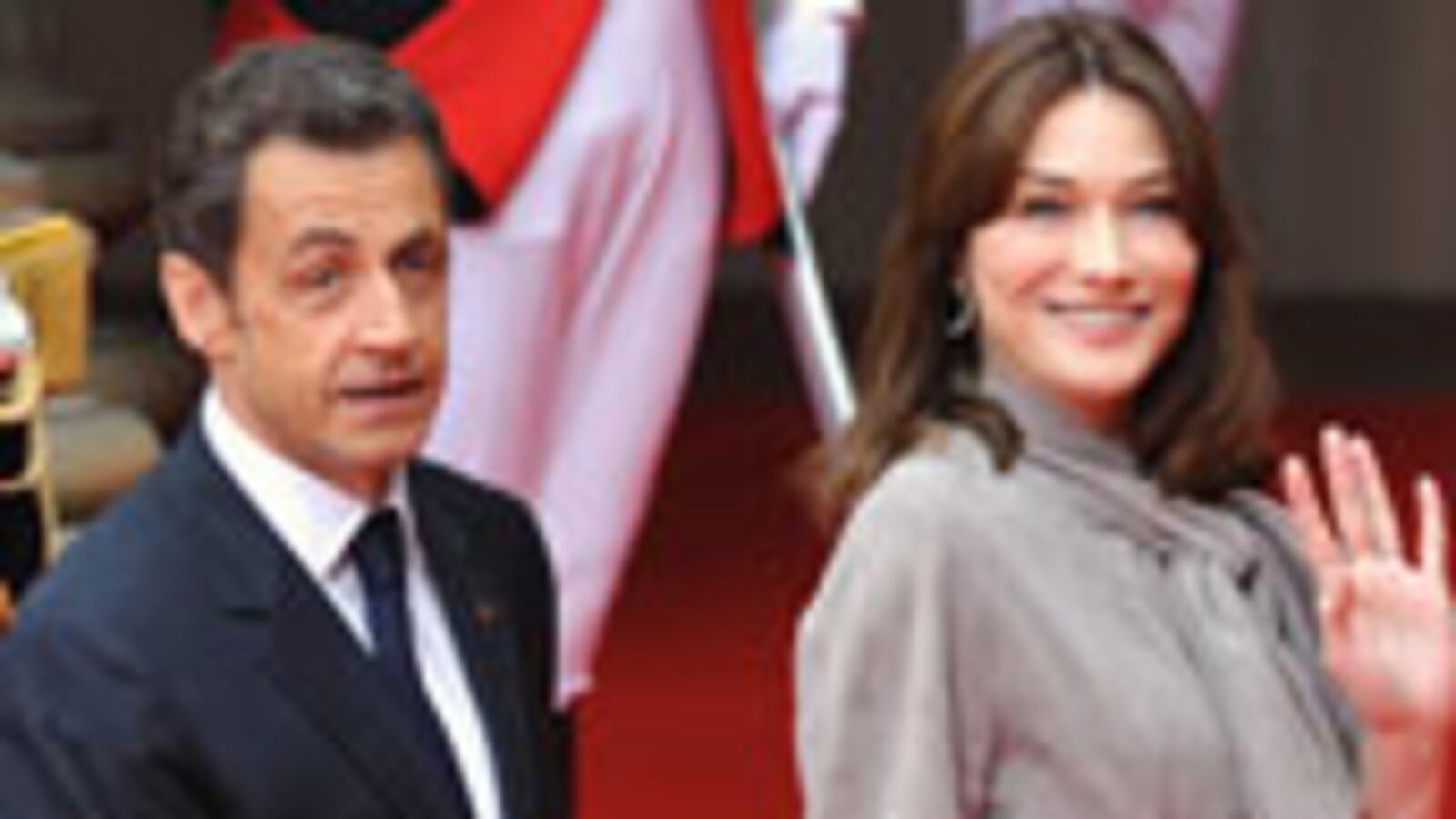
On a hot, sunny day in late July, when many Frenchmen his age were uncorking bottles of rosé, President Nicolas Sarkozy was in the midst of a 45-minute run in the park outside the Chateau of Versailles. Sarkozy is known for running—television crews often film him, sweaty and uncouth, as he jogs in an NYPD t-shirt. It is a potent part of the Sarkozy brand: he is tireless and in perpetual motion. His running may be more American than French, but as a manifestation of his relentless work ethic, it probably wins him votes. The problem is that this time, according to witnesses, Sarkozy staggered, and either collapsed or lay down with the assistance of an aide (depending on whether you believe witnesses or his cabinet).
Every French person knows better than to believe their president’s assurances about health problems. Georges Pompidou suffered from a "recurring flu"—until he died of bone marrow cancer in office.
How could this happen? How could France’s 54-year-old president—youthful in a country that generally elects men a decade or more older— overwork himself to the point of collapse, as French doctors later explained? One possible answer: his elegant, younger-than-her-41-years wife, Carla Bruni Sarkozy. The Italian heiress-turned-pop singer-turned-French first lady is a woman accustomed to spending nights with rock stars, bohemian artists and hunky actors, and her days with fitness trainers. Bruni has, of late, introduced Sarkozy to her world, and it has led to a striking visible change in the lifelong political junkie.
When Nicolas Sarkozy was elected president of France in 2007, he promised to rejuvenate France’s stolid old political ways; while it is unclear whether he succeeded in that, he likely didn’t realize that his presidency would lead to his own rejuvenation. Just after his election, he divorced his second wife (who is 51) and quickly met and married Carla Bruni. Her impact on Sarkozy is, after less than two years, readily apparent. She toned down his gaudy taste in jewelry and introduced him to the finest tailored suits. He has recently shown an unexpected interest in highbrow literature and poetry, as well as classic cinema; all of which he had sacrificed to political ambitions that began in his 20s.
But most notably, Sarkozy’s body has been transformed. A man who has long struggled with migraines and awkward weight in the lower region that made it appear as though he had eaten a small barrel that he couldn’t digest, Sarkozy has undergone a dramatic overhaul in the hands of Bruni and her 26-year-old trainer. They have pushed him away from chocolate snacks and desserts into a more regular and disciplined workout regime. Out with refined sugars—and even some cheese, sacre bleu!—-in with vegetables and fiber. The results were on display July 17, during a visit to New York, where Bruni was performing at Nelson Mandela’s 91st birthday concert, as the fit first couple jogged together in Central Park. It all seemed good, until last weekend’s scare.
Every French person knows better than to believe their president’s assurances that health problems are not serious. President Georges Pompidou suffered from a "recurring flu"—until he died of bone marrow cancer in office in 1974. President Francois Mitterrand hid his own terminal prostate cancer for more than a decade (even demanding that his doctor issue falsified health bulletins).
But after 24 hours involving numerous medical tests, doctors insisted that Sarkozy was fine. A notice from the presidential palace blamed his feeling faint on exercising too strenuously when the temperature was in the mid-eighties and generally overexerting himself. Doctors prescribed several days of rest, and his staff promptly cancelled a ceremonial visit to the abbey of Mont-Saint-Michel on France’s northern coast. After overseeing the summer’s final Council of Ministers meeting on Wednesday, he will head off on a pre-planned vacation at Carla Bruni Sarkozy’s family residence at Cap Nègre on the French Riviera. The healthy new lifestyle continues, apparently; His friend and political collaborator Patrick Balkany told on RTL radio on Sunday, “He is hungry. He’s complaining—so everything is okay.”
But Sarkozy looked haggard when he stiffly walked out of the hospital Monday afternoon in his ubiquitous dark suit. He was, of course, holding hands with the youthful looking Bruni, dressed in designer sunglasses and sandals. He raised a weak hand to greet journalists and well-wishers from a distance, betraying a bandage that covered what appeared to be an infusion entry point over the main vein on his inner right wrist. No one said it in a country where older men date younger women, but at that moment, he looked old enough to be Bruni’s father.
Sarkozy has long been known as France's "man in a hurry" for his relentless—some would say manic—energy and ambition, so slowing down would be a challenge for him under any circumstances. But for a 54-year-old man to try keeping up with his youthful wife while also running one of Europe's most powerful countries may be more than he can manage. Bruni has organized dinners to welcome Dennis Hopper, David Lynch, and Marianne Faithfull, among others, as part of her husband's cultural education. In the June 11 issue of Paris-Match magazine, Faithfull commented about Sarkozy, "Apparently, he had never seen a Fellini film. I can easily imagine him appreciating [aging cheeseball faux-Elvis French rocker] Johnny Hallyday, but he has changed, thanks to her." Sarkozy has also been spotted at galleries and performances where he was rarely seen before.
Balkany, a longtime friend of the first couple, partially blamed the president's strict new diet for the episode in Versailles. The president needed to relax and "eat a bit more," he said. Balkany even lamented that Sarkozy "looked more like a Tour de France racer than a president."
“When you are fifty-four,” Balkany added, “you can’t have an endlessly strict diet.” Balkany might prefer that Sarkozy relax and enjoy a glass of rosé, but that isn’t an option. He’s a legendary teetotaler.
Eric Pape has reported on Europe and the Mediterranean region for Newsweek Magazine since 2003. He is co-author of the graphic novel, Shake Girl , which was inspired by one of his articles. He has written for the Los Angeles Times magazine, Spin, Vibe, Le Courrier International, Salon, Los Angeles and others. He is based in Paris.





